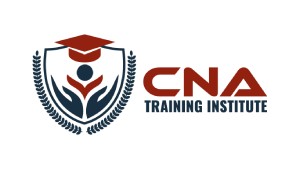Mentorship is essential to the growth and success of healthcare workers in the ever-changing area of medicine. A more experienced person (mentor) and a less experienced person (mentee) can build a relationship through training that offers the knowledge, support, and advice needed for both professional and personal development. The abilities, self-assurance, and general career trajectory of a healthcare practitioner can all be greatly improved by this collaboration offered in training for health professionals in UAE.
Guidance and Knowledge Transfer
A principal advantage of professional medical training in UAE healthcare industry is the dissemination of expertise and understanding from seasoned practitioners to novices. Healthcare is a constantly changing sector with intricate procedures, tools, and methods for patient care. Mentors offer valuable insights into managing these complications through their vast expertise. They can offer helpful guidance in managing difficult cases, comprehending the complexities of different medical technologies, and adjusting to novel treatment regimens. Not only does this knowledge transfer shorten the mentees’ learning curve, but it also empowers them to make more informed judgments in their practice.
Professional and Personal Growth
Mentoring available at a medical education platform in Middle east promotes progress on both a personal and professional level. Besides gaining clinical expertise, healthcare workers must also build their leadership, communication, and emotional toughness along the way. Mentors assist mentees in identifying their areas of strength and growth by offering constructive criticism and feedback. Self-awareness and constant improvement depend on this feedback loop. Moreover, mentors often impart ideas for stress management, work-life balance, and career growth to mentees by sharing their own experiences of conquering obstacles.
Career Advancement
The impact of mentoring on job advancement can be substantial. A mentor can help a mentee explore several career routes in the healthcare industry, navigate organizational hierarchies, and define career goals. They can offer guidance on obtaining further education, credentials, or specializations that fit the mentee’s hobbies and desired job path. Furthermore, mentors can connect mentees to important contacts through their vast professional networks, which can lead to new opportunities and collaborative efforts.
Enhancing Job Satisfaction and Retention
Participating in training programs has increased job satisfaction and career fulfillment among healthcare professionals. A stronger sense of purpose and belonging at work might result from the support and encouragement offered in a training by a mentor. This beneficial experience might reduce emotions of burnout and loneliness, which are prevalent in the hard healthcare industry. Moreover, mentoring fosters a positive work atmosphere where professionals feel inspired and appreciated, which raises retention rates in healthcare institutions. Mentoring is essential to the professional development of healthcare professionals. It offers a planned route for information transfer, growth promotion, career advancement, and increased job satisfaction. Better patient care and a more robust healthcare system can result from healthcare professionals navigating their careers with increased skill and confidence with excellent mentoring. Companies that fund mentoring initiatives help their employees and further the development of the healthcare industry overall.

